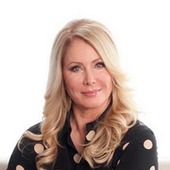Many first-time buyers are unprepared for the financial burdens of homeownership.
Lenders to tell them the maximum they can afford based on their incomes with little regard for the "extras" such as utilities, upkeep and improvements.
You're told what your monthly nut for principal, interest, taxes and insurance — the all-important PITI — will be. But likely because you won't know exactly what the other costs will be until you actually move into your new place, they are rarely mentioned. And as a result, borrowers who mortgage themselves to the hilt often find themselves "house poor."
They own a home, all right, but they can't afford anything else. Sometimes not even the heat or hot water.
Rookies who are transitioning from an apartment are usually better prepared than those who are making the move from the family nest. Renters probably paid at least something for their utilities, whereas those leaving the friendly confines of Mom and Dad's house for the first time probably have never ever had to dig into their pockets for food, let alone electricity.
As owners, though, they will be responsible for electricity and/or gas, water and sewer and trash removal. Then there's the phone bill if you want a landline, and cable if you expect to watch television.
Utilities are a big add-on. According to the U.S. Department of Energy, the typical family spends $1,900 a year — $158 a month — on home utilities.
Another frequently overlooked expense is association dues. There isn't any hard data, but estimates are that four of five housing starts in metropolitan areas are part of "common interest" subdivisions or condominiums. That means residents not only own their homes or apartments but also a share of the community's public areas — the streets, parking lots and walkways — with all the other owners.
Some 60 million people nationwide live in 305,000 homeowner and condo association-governed communities, all of which collect fees usually monthly or quarterly, according to the Community Associations Institute (CAI). Even if you don't use the pool or golf course, you have to pay your share.
Whatever the amount — less than $25 monthly or more than $500 — it shouldn't be overlooked. "I don't think we've properly addressed it in terms of the real cost of housing," said Steve Melman, director of economic services at the National Assn. of Home Builders (NAHB).
Indeed, as Melman rightly points out, the tax benefits of ownership — annual mortgage interest and property tax write-offs — are often offset, at least partially, by the cost of association dues. Not only are dues not deductible, he notes, they "add a significant amount" to the monthly outlay.
Another significant expense all buyers, not just first-timers, tend to forget is what they'll spend for furnishings, appliances and property alterations.
A 2007 study by the Harvard's Joint Center for Housing Studies shows that consumers spent an average of $14,206 on home improvements during their first two years of ownership. But according to NAHB's research, most of the extra spending — 60% — occurs within the first three months after taking occupancy.
The spending doesn't stop there, though, especially if you're buying a previously occupied house. There's also the cost of upkeep.
"Whether you are moving into a new or old home," says Dan Steward, president of Pillar to Post, a home-inspection company, you "need to be aware of the ongoing maintenance any home requires."
Buyers should figure on spending 1% of the home's value per year for maintenance, Steward said.
From L.A. Times
Valerie Fitzgerald specializes in luxury residential real estate in Beverly Hills, Bel Air, Brentwood, Santa Monica and Malibu. Valerie has more than 20 years of real estate experience and is known for her solid reputation in the West Los Angeles brokerage community. She’s also the author of the book published by Simon and Schuster Heart and Sold: How to Survive and Build a Recession-Proof Business.
Check out Valerie Fitzgerald Beverly Hills Real Estate Listings

Comments(0)